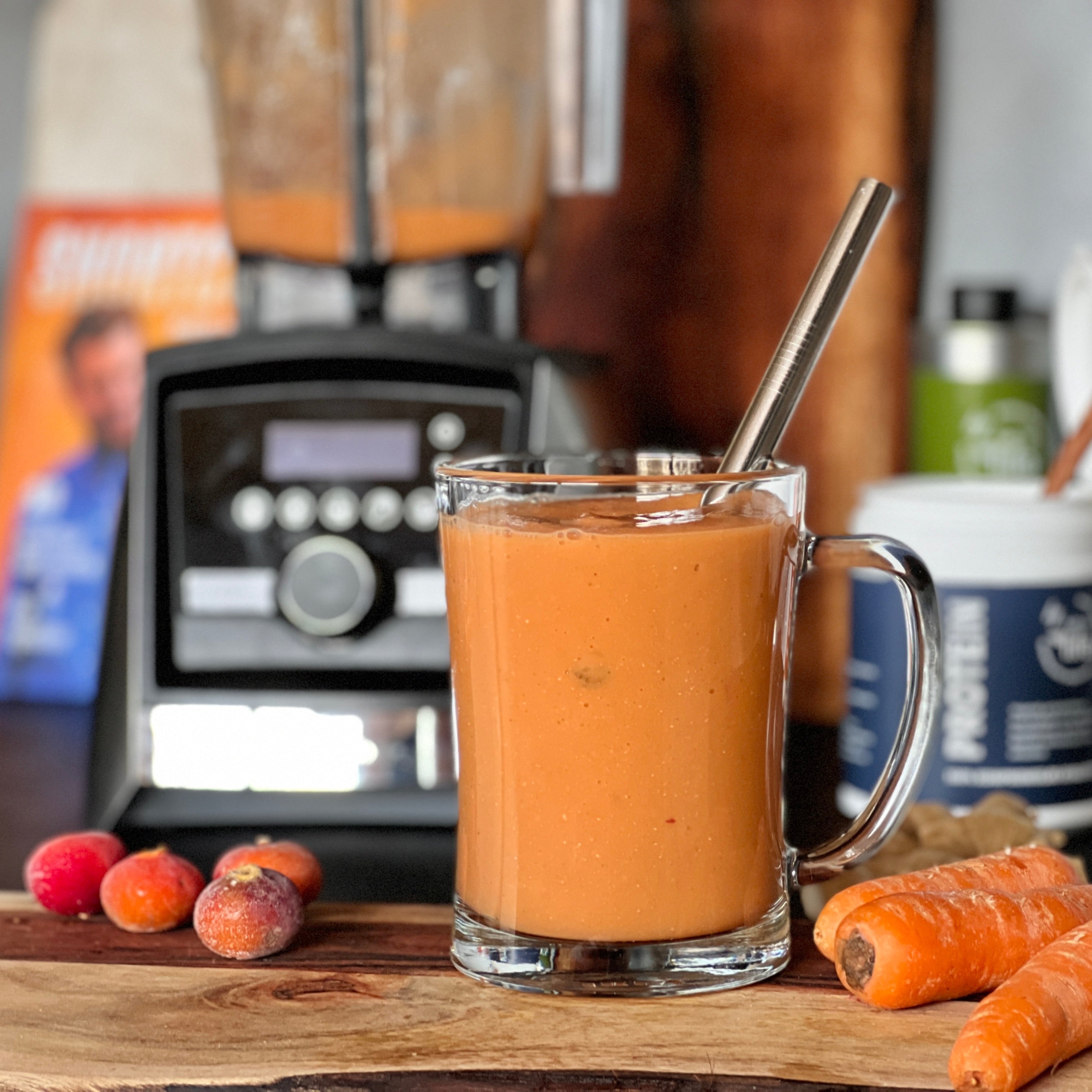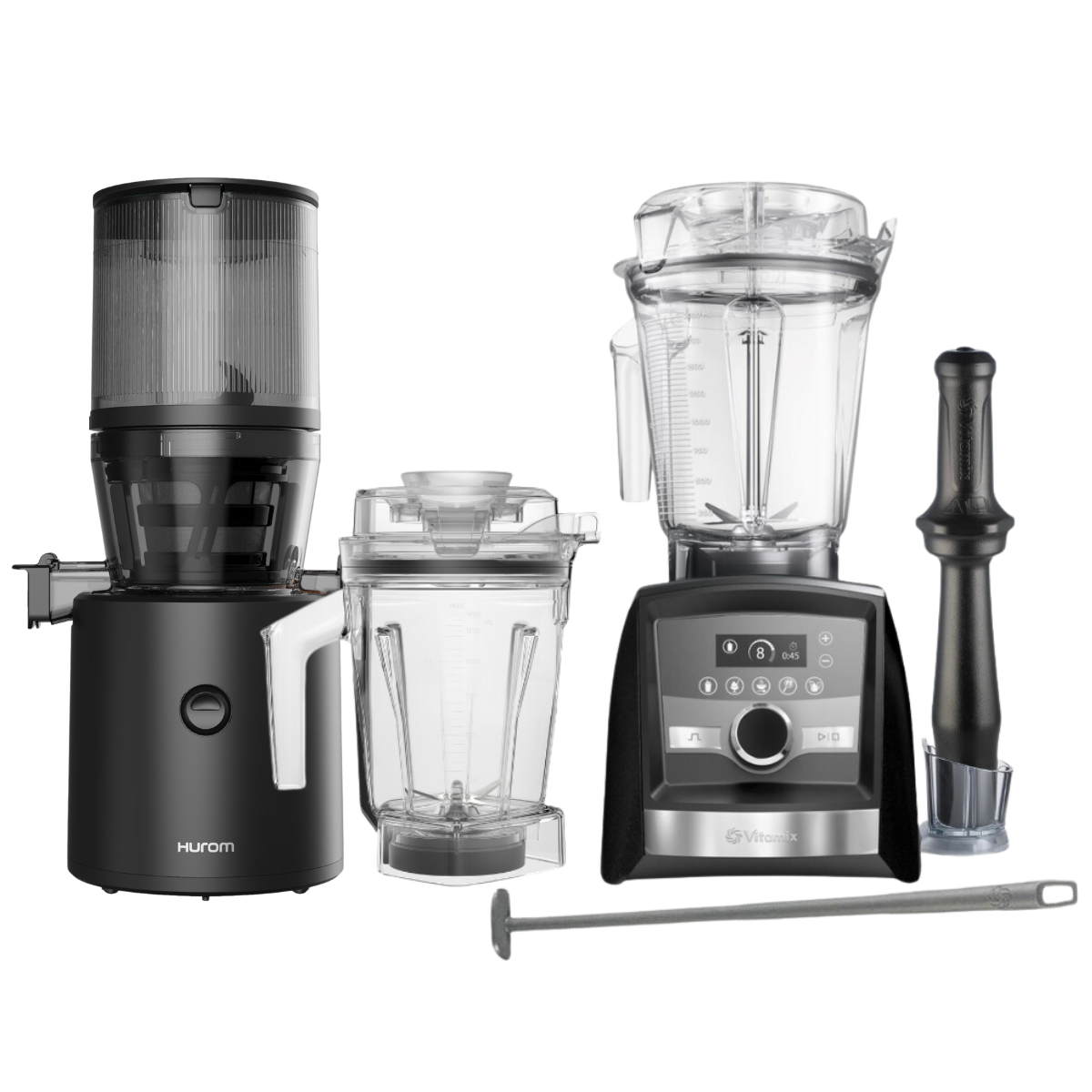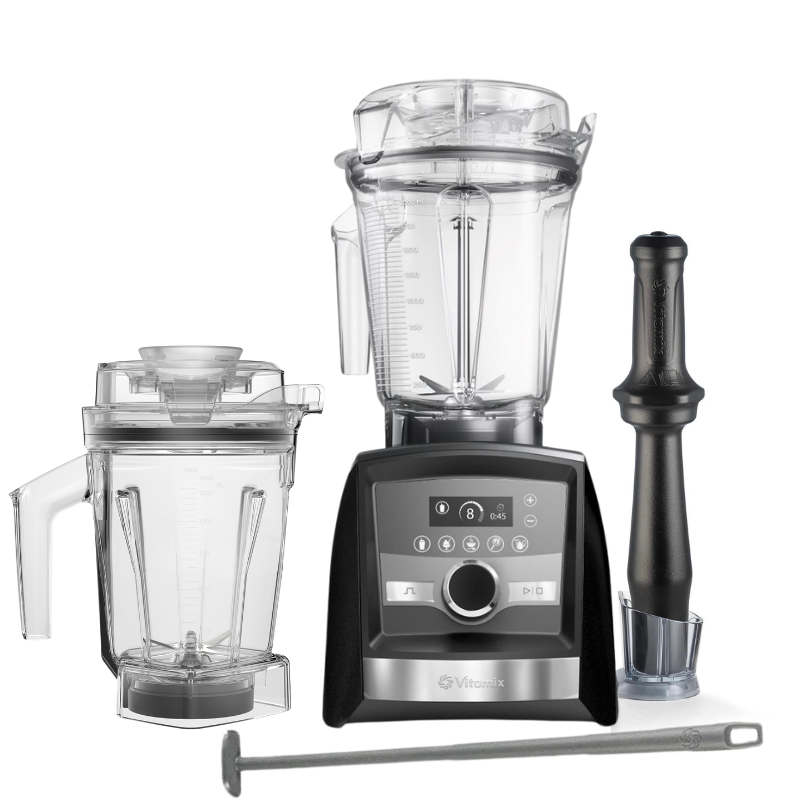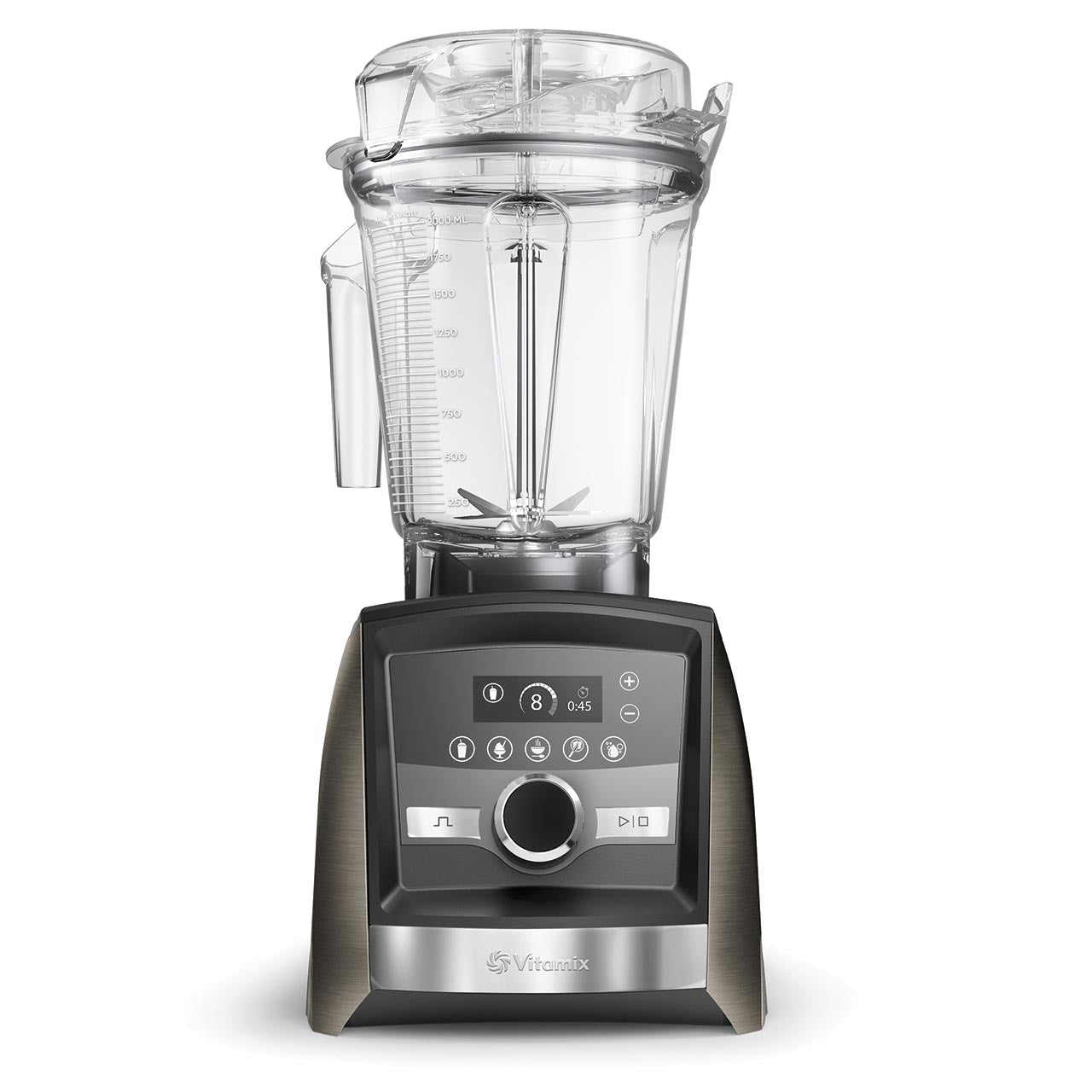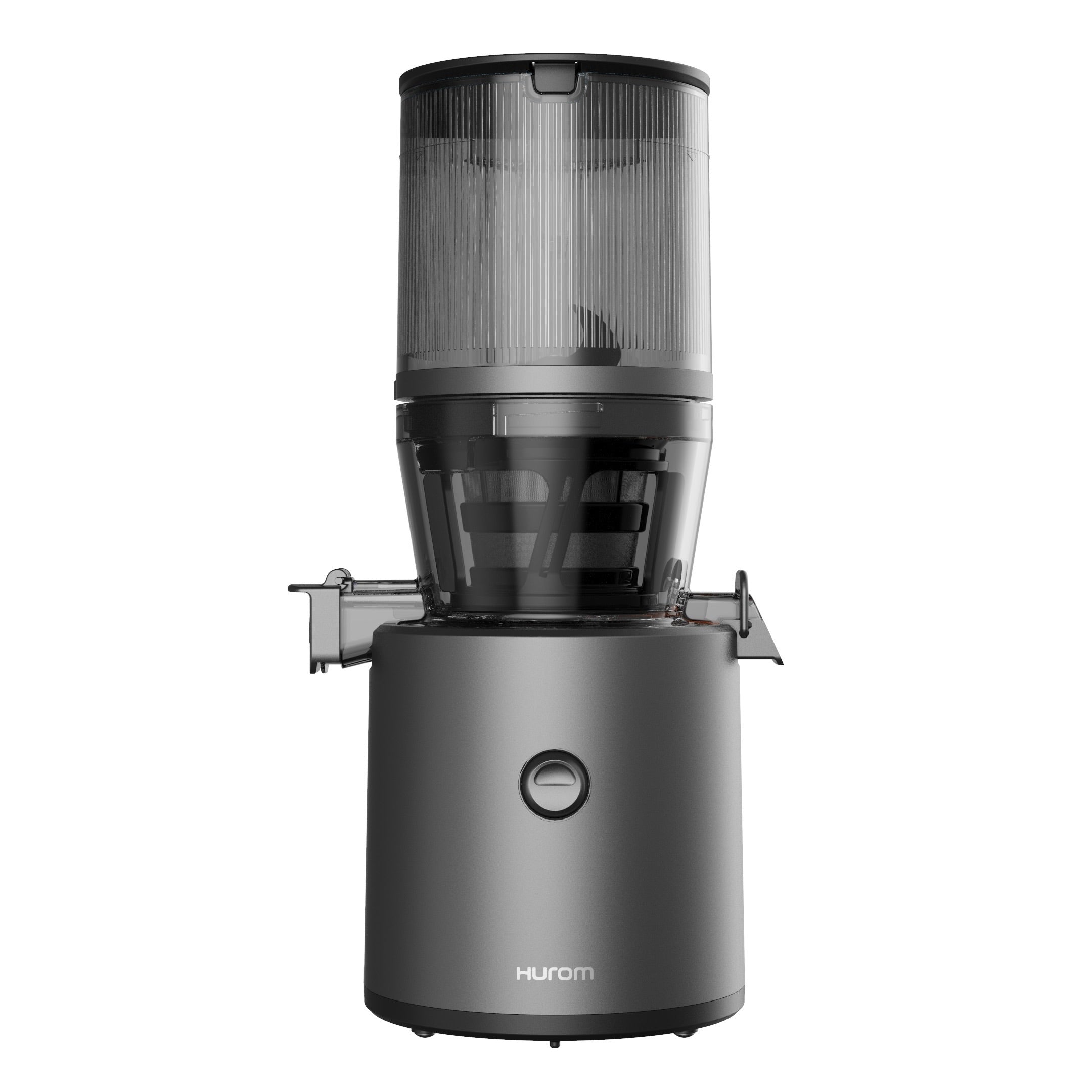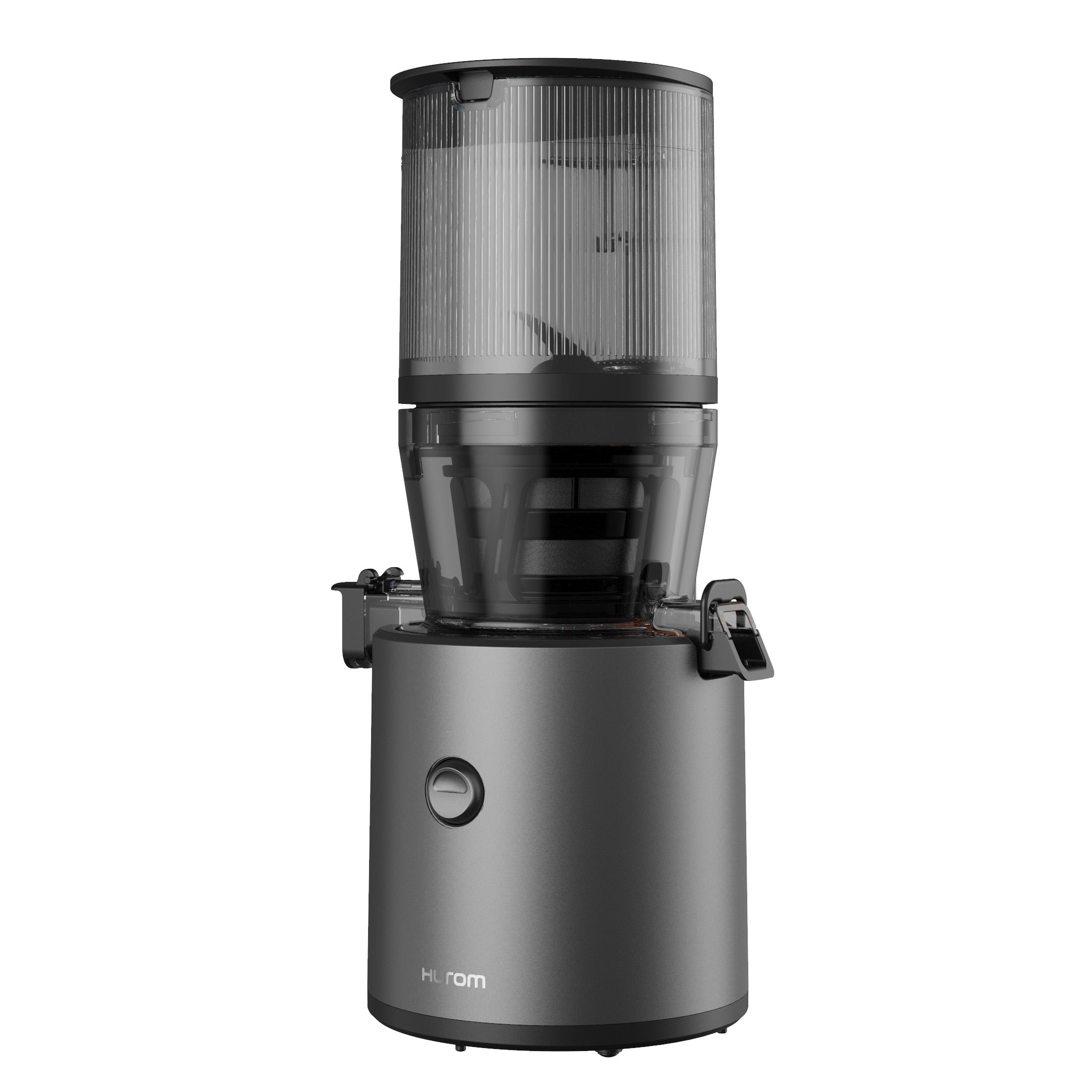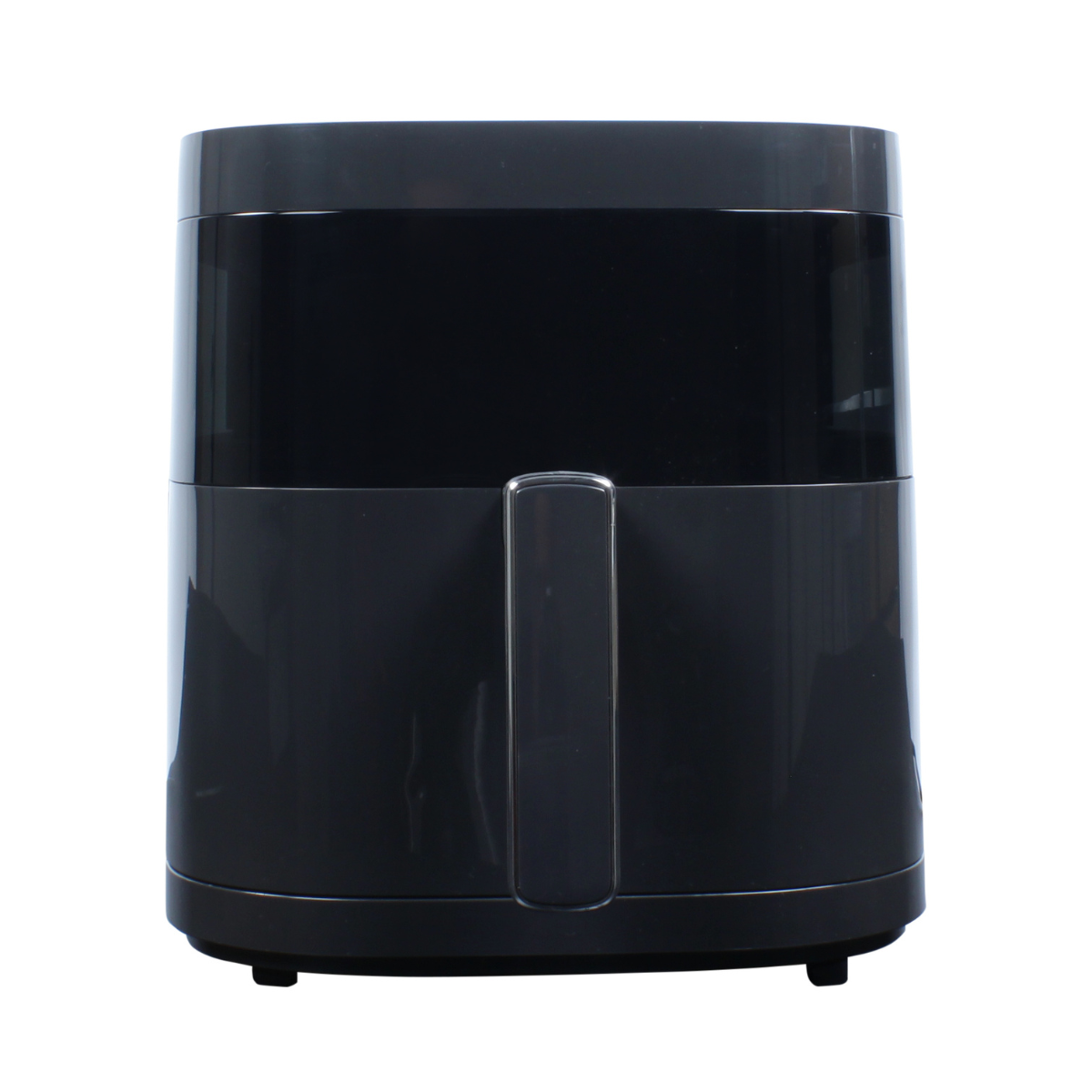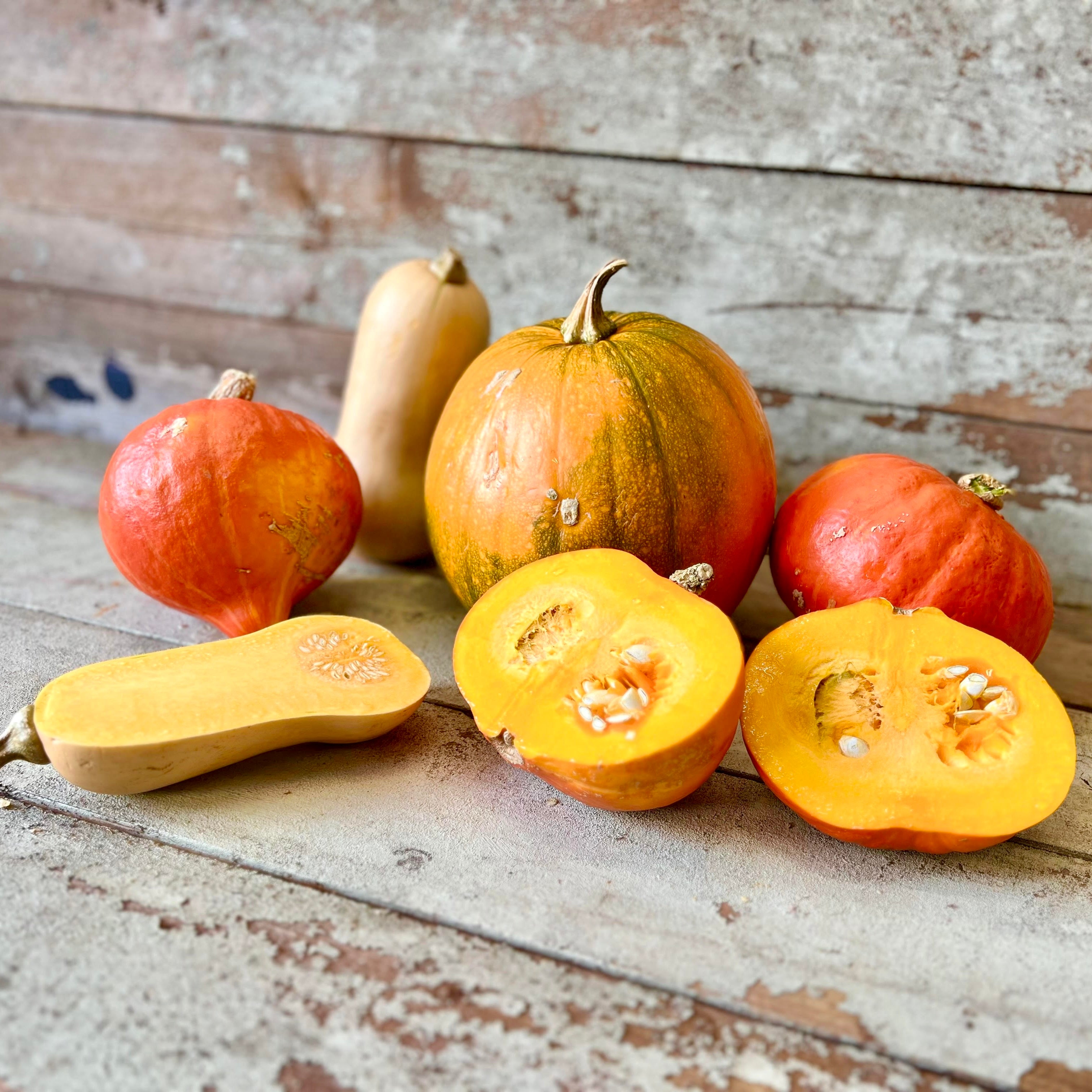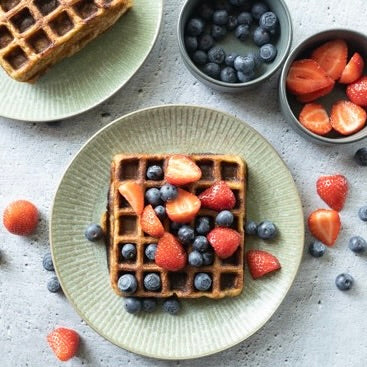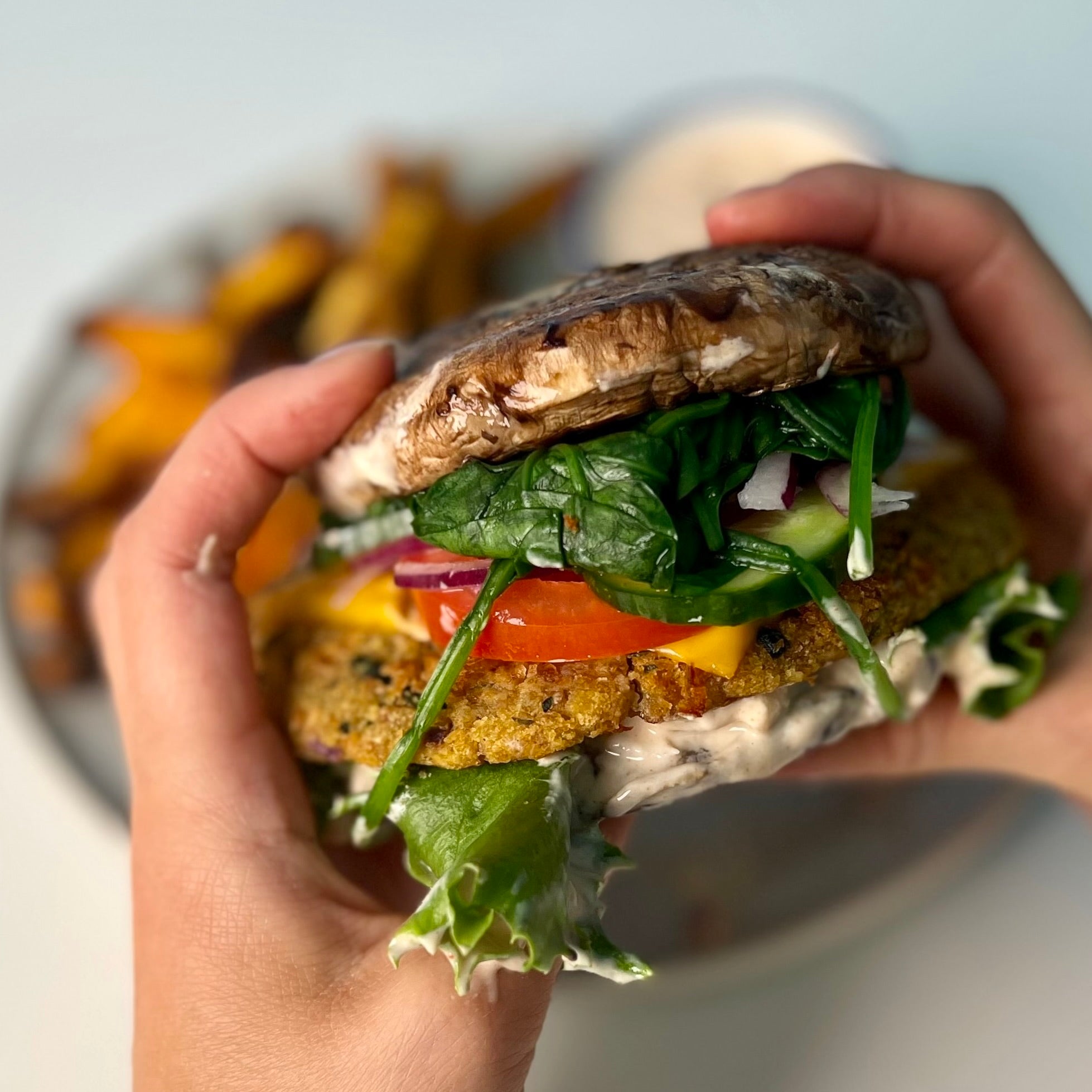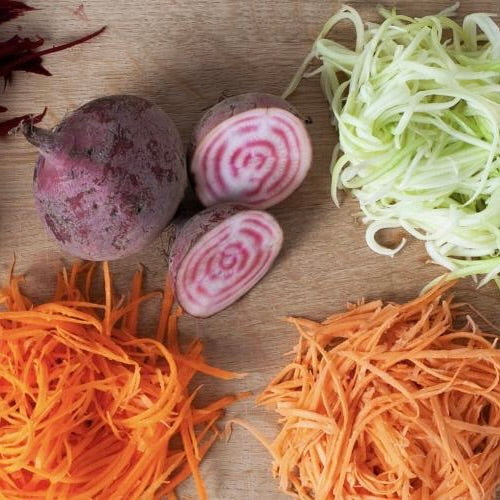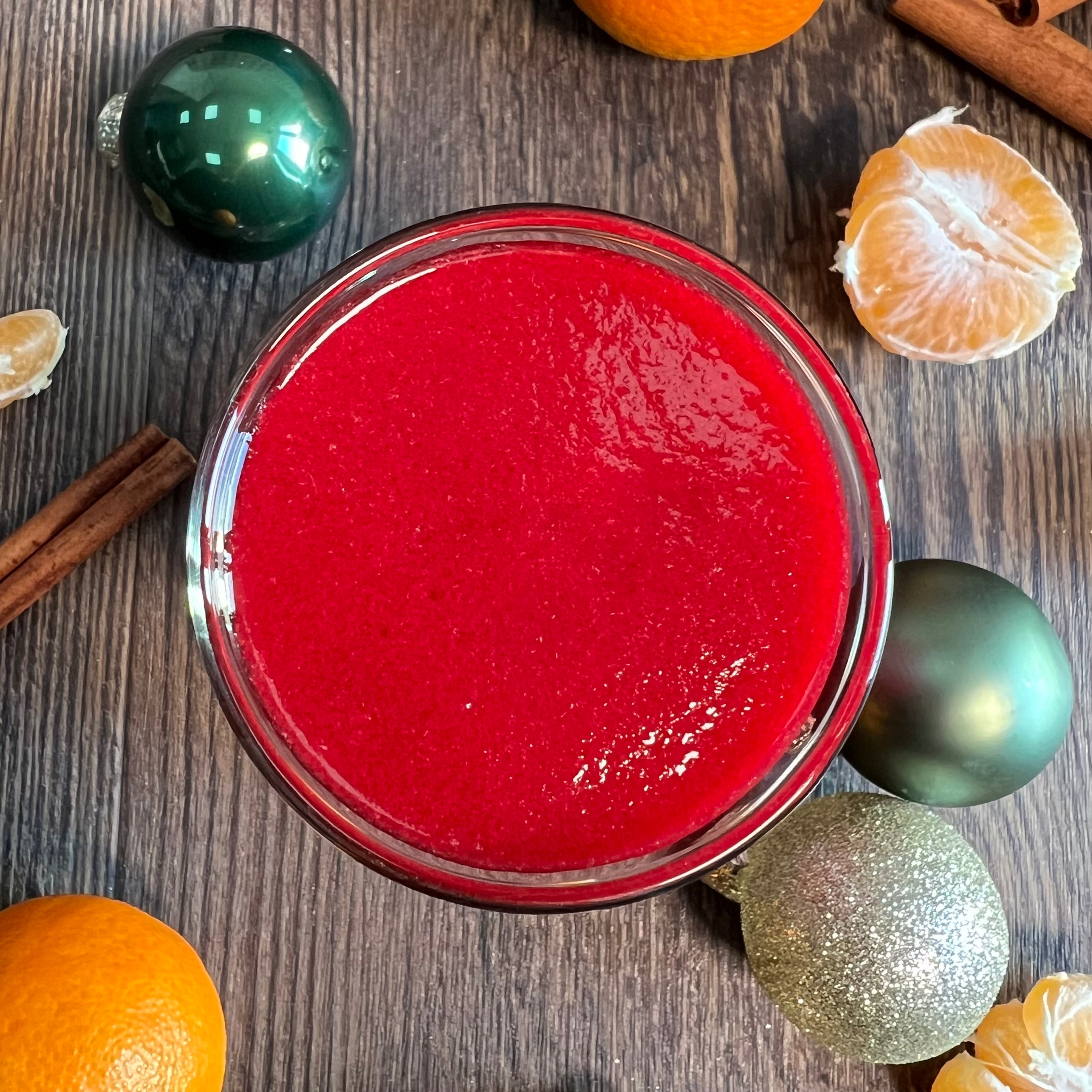Jeg bliver ofte spurgt om kalorieindholdet i mine opskrifter. Og der er altså en rigtig god grund til, at jeg ikke skriver noget om det i mine bøger. For jeg har nemlig længe været imod, at vi skal tælle kalorier, for du bliver ikke sundere af at nøjes med tre småkager frem for fire.
Er det sundt at tælle kalorier?
Jeg er helt med på, at hvis vi kigger helt isolereret set, og tager udgangspunkt i at kroppen fungerer optimalt, fejlfrit - og en masse andre hensyn, så kunne man teknisk set godt købe ind på kaloriekonceptet. Men der er bare et problem. Vi er ikke maskiner. Vi er mennesker. Af kød og blod. Heldigvis er flere og flere fagpersoner, heriblandt læger, der har fået øjnene op for, at sundhed og vægttab alligevel ikke er så simpelt, som en kalorie ’ind’, en kalorie ’ud’.
Efter 20 år i branchen, er min erfaring at det ikke handler om hvor mange kalorier du spiser. Det handler om, hvilken påvirkning den kalorie du spiser h, på f.eks. din indre biokemi, din efterfølgende sultfornemmelse, fordøjelse, inflammationstilstand, hormoner (især insulin regulering) og sammensætning af bakterier i tarmen mv.. Vi kan tælle alle de kalorier vi vil, men har vi f.eks. hormonelle ubalancer, så god fornøjelse med den strategi.
Kroppens basale næringsbehov
Hvis du virkelig ønsker at leve sundt - og evt. ønsker at tabe dig, må du erstatte tomme kalorier med sand livskraft. Vores krop er ikke designet til at håndtere slik, chips, kunstige e-numre, færdigretter, kiks, chokolade og sodavand i de store mængder, mange udsætter den for. Vi må hver dag gøre, hvad vi kan, for at dække kroppens basale behov. For gør vi det, vil det efterlade dig langt mere mæt, tilfreds og tilpas. Alt i vores krop fungerer bedre, når vi ikke er i underskud af essentielle fedtstoffer, fibre, makronæringsstoffer - og især mikronæringsstoffer.
En kalorie er IKKE en kalorie
Det at du taber dig ved at spise naturlig mad, er et resultat af at kroppen kommer i balance. Faktisk har direktøren for verdens største slankekoncept, Vægtvogterne, meldt ud, at kalorietælling må ses som spild af tid. Det gamle kalorie-pointsystem er nu droppet til fordel for mere fokus på ’naturlig mad’. Denne nyhed gør mig rigtig glad, da Vægtvogterne ellers har været frontløbere for kalorietælling i rigtig, rigtig mange år. Så nu mangler vi bare det danske sundhedssystem, og de folk, de uddanner. De mener nemlig stadig ’at jorden er flad’. At en kalorie er en kalorie! For dem er det nemlig fuldstændig ligegyldigt, om du spiser 10 chokoladefrøer eller fem kilo broccoli. For som de siger, det feder lige meget. Om ti år kan alle vores forsøg på at leve sundt og tabe os ved at tælle kalorier, blive betragtet af vores børn og børnebørn, som en del af vor generations tåbeligheder.
Hungersnød og kalorieunderskud
Når vi nedsætter indtaget af kalorier, sænker kroppen forbrændingen, fordi den prøver at holde på de energidepoter den har. Ofte fører det til at vi føler os tunge, trætte og lave på energi, hvilket på ingen måde gavner motivationen til også at bevæge sig, teste nye og sunde opskrifter, være social mv. Kroppen tror der er hungersnød! Afhængig af hvor få kalorier vi spiser, skal denne strategi nok virke, i en periode. Derefter vil effekten aftage, hvorfor mange fristes til at gå skridtet videre, og sænke sit kalorieindtag endnu mere, hvilket i sidste ende kan føre til lavt stofskifte og andre udfordrende sundhedsproblematikker.
Overfodret og underernæret
Mit råd er at spise rigtig mad. Mad du kan genkende og mad uden labels! For hvem har nogensinde spist fem bananer og tænkt, ‘jeg tror sgu liiige jeg snupper en mere’. Det kommer aldrig til at ske. Og det er sjovt nok heller aldrig sket med laks, kikærter og broccoli. Hvorfor ikke? Fordi de alle bidrager med en ‘sand’ mæthedsfølelse. Når vi modsat spiser det vi ikke er ment til, fører det som oftest til det fænomen jeg kalder for ‘overfodret og underernæret’, hvor vi konstant går rundt og har lyst til at spise noget hele tiden. Og ender vi der, ja så bliver vi nødt til at lave restriktioner, give vores mad farver, point osv. Handlinger som stjæler vores nærvær og evne til at være til stede i livet og blandt de mennesker, vi omgiver os med. I yderste konsekvens, vil jeg påstå at kalorietælling har potentialet til at gøre os skøre i hovedet.
Mad uden labels
Spiser vi hele dagen og drikker en halv liter olivenolie som natmad, så er jeg helt med på at kroppen vil begynde at lagre ’energi ’til en anden god gang’. Men lad os nu stå sammen om at inspirere til at spise rigtig mad. Mad vi kan genkende. Mad vi laver fra bunden. Mad uden labels. Mad der hænger på træerne og kommer op af jorden. Mad der ikke er blevet manipuleret med. Naturligt mad. Økologisk mad. Og er man ikke vegetartypen, så mad fra dyr der har haft et så godt liv som muligt og spist det, de er ment til.
Det handler ikke om, hvor mange kalorier du spiser. Det handler om hvilken påvirkning den kalorie du spiser har, på hele kroppen. Derfor er min opfordring at spise rigtig mad og droppe kalorie-tælling. Selvfølgelig er to blomkålshoveder langt bedre for kroppen – og vægttabet, end en halv liter sodavand. Selvom de indeholder samme mængde kalorier.
/ Mads Bo
Og til de lidt mere nørdede. Ikke nok med at jeg har svært ved at forstå kalorie-tankegangen, så ligger der faktisk en hel del forskning derude, som netop viser, at vi skal fokuser på 'rigtig mad':
Forskning på kalorietælling
• For Calories, It's All About Quality Over Quantity, Harvard Study Says. When it comes to losing weight, a study from Harvard University found that the number of calories consumed is not necessarily as important as the quality of those calories. http://abcnews.go.com/Health/calorie-calorie-harvard-study-compares-popular-weight-loss/story?id=16654506
• (1932) The treatment of obesity. A comparison of the effects of diet and of thyroid extract. "Food in excess of immediate requirements ... can easily be disposed of, being burnt up and dissipated as heat. Did this capacity not exist, obesity would be almost universal." https://doi.org/10.1093/oxfordjournals.qjmed.a066590
• (1941) Obesity – It’s Pathogenesis, Etiology and Treatment. “The current energy theory of obesity, which considers only an imbalance between intake of food and expenditure of energy, is unsatisfactory. It is the distribution of energy in the body too which counts, not alone the rough imbalance between its intake and output. The adipose tissue is not merely a passive storing place for reserve fat, but a living and active part of the body, with its own physiologic and pathologic processes.”
• (1971) Effect on body composition and other parameters in obese young men of carbohydrate level of reduction diet. "Weight loss, fat loss, and percent weight loss as fat appeared to be inversely related to the level of carbohydrate in the isocaloric, isoprotein diets. No adequate explanation can be given for weight loss differences." http://ajcn.nutrition.org/content/24/3/290.abstract
• (1986) Effects of exercise-training on the thermic effect of food and body fatness of adult women “Analyses of food intake indicated that diet composition (but not caloric intake) was highly related to the changes in VO2max, RMR [(Resting metabolic rate)], TEF [(thermic effect of food)] and body fatness.” https://ncbi.nlm.nih.gov/pubmed/3823186
• (1990) Diet composition, energy intake, and exercise in relation to body fat in men and women. "There was no relationship between energy intake and adiposity..."
https://ncbi.nlm.nih.gov/pubmed/2393005 | http://general.utpb.edu/fac/eldridge_j/kine6362/Readings/Nut3.pdf
• (1997) Divergent trends in obesity and fat intake patterns: the American paradox. "Reduced fat and calorie intake and frequent use of low-calorie food products have been associated with a paradoxical increase in the prevalence of obesity." https://doi.org/10.1016/S0002-9343(96)00456-1
• (1998) Short-Term Impact of a Lactovegetarian Diet on Adrenocortical Activity and Adrenal Androgens. "As is obvious from our study also, the isocaloric switch to vegetarian nutrition (diet L) can lead to the kind of particular metabolic situation with elevated plasma DHEAS levels and reduced urinary DHEAS output that is normally characteristic of fasting." https://doi.org/10.1210/jcem.83.6.4883
• (2002) Postprandial thermogenesis is increased 100% on a high-protein, low-fat diet versus a high-carbohydrate, low-fat diet in healthy, young women. https://ncbi.nlm.nih.gov/pubmed/11838888
• (2004) "A calorie is a calorie" violates the second law of thermodynamics. "The principle of "a calorie is a calorie," that weight change in hypocaloric diets is independent of macronutrient composition, is widely held in the popular and technical literature, and is frequently justified by appeal to the laws of thermodynamics." https://doi.org/10.1186/1475-2891-3-9
• (2004) Is a Calorie Really a Calorie? Metabolic Advantage of Low-Carbohydrate Diets. "Well-controlled studies suggest that calorie content may not be as predictive of fat loss as is reduced carbohydrate consumption. Biologically speaking, a calorie is certainly not a calorie." https://doi.org/10.1186%2F1550-2783-1-2-21
• (2004) Thermodynamics of weight loss diets. "It is commonly held that "a calorie is a calorie", i.e. that diets of equal caloric content will result in identical weight change independent of macronutrient composition, and appeal is frequently made to the laws of thermodynamics. We have previously shown that thermodynamics does not support such a view and that diets of different macronutrient content may be expected to induce different changes in body mass." https://doi.org/10.1186%2F1743-7075-1-15
• (2006) Metabolic advantage of low-carbohydrate diets: a calorie is still not a calorie http://ajcn.nutrition.org/content/83/6/1442.full
• (2008) A low-energy-dense diet adding fruit reduces weight and energy intake in women. "Fruit and oat cookies had the same amount of fiber and total calories (approximately 200 kcal), but differed in energy density." ... "Apples and pears were also associated (p<0.001) with weight reduction (-0.93 kg for the apple and -0.84 for the pear group), whereas weight was unchanged (+0.21; p=0.35) in the oat group." https://doi.org/10.1016/j.appet.2008.03.001
• (2009) Macronutrient balance and lifespan. "It is generally believed that the benefits of DR [(dietary restriction)] arise from eating fewer calories (termed caloric restriction, CR). Here we argue that, rather than calories, the key determinant of the relationship between diet and longevity is the balance of protein to non-protein energy ingested." https://doi.org/10.18632%2Faging.100098
• (2010) Postprandial energy expenditure in whole-food and processed-food meals: implications for daily energy expenditure. "A higher thermogenic response was observed after a meal composed of whole foods than after an equivalent and isocaloric meal comprised of highly PFs [(processed foods)]." https://doi.org/10.3402%2Ffnr.v54i0.5144
• (2012) Effects of Dietary Composition on Energy Expenditure During Weight-Loss Maintenance. "The results of our study challenge the notion that a calorie is a calorie from a metabolic perspective." https://doi.org/10.1001%2Fjama.2012.6607
• (2015) Forskere: Hold op med at tælle kalorier https://videnskab.dk/krop-sundhed/forskere-hold-op-med-taelle-kalorier
• It is time to stop counting calories, and time instead to promote dietary changes that substantially and rapidly reduce cardiovascular morbidity and mortality. “The weight loss industry, which emphasises calorie restriction over good nutrition, generates $58 billion in revenue annually in the USA, even though long-term follow-up studies reveal that the majority of individuals regain virtually all of the weight that was lost during treatment irrespective of whether they maintain their diet or exercise programme.” … “The look AHEAD (Action for Health in Diabetes) trial found no reduction in the composite endpoint (ie, death from cardiovascular causes, non-fatal myocardial infarction, non-fatal stroke, or hospitalisation for angina) with a low calorie diet (on top of increased physical activity) in patients with type 2 diabetes despite a maximum follow-up of 13.5 years and despite significant weight loss in the intervention group.” https://ncbi.nlm.nih.gov/pmc/articles/PMC4555071
• (2015) Obese children's health rapidly improves with sugar reduction unrelated to calories. "Study indicates that calories are not created equal; sugar and fructose are dangerous" https://sciencedaily.com/releases/2015/10/151027074759.htm
• Isocaloric fructose restriction and metabolic improvement in children with obesity and metabolic syndrome http://dx.doi.org/10.1002/oby.21371
• (2017) Foods, obesity, and diabetes-are all calories created equal? “Clearly, this is not the case: consuming 300 calories from nuts is a much healthier choice, including for obesity, than 200 calories of soda or refined starch. Yet, with a total-calorie focus, consumers are being driven to these choices. Modern nutrition science indicates that foods should not be judged by calorie or fat content alone.” https://ncbi.nlm.nih.gov/pubmed/28049747 | https://doi.org/10.1093/nutrit/nuw024
• (2017) Eating at 'wrong time' affects body weight, circadian rhythms “A new high-precision feeding system for lab mice reinforces the idea that the time of day food is eaten is more critical to weight loss than the amount of calories ingested.” https://sciencedaily.com/releases/2017/07/170718091542.htm
• Mice under Caloric Restriction Self-Impose a Temporal Restriction of Food Intake as Revealed by an Automated Feeder System http://doi.org/10.1016/j.cmet.2017.06.007
• (2017) Postprandial energy metabolism and substrate oxidation in response to the inclusion of a sugar- or non-nutritive sweetened beverage with meals differing in protein content. “Evidence suggests that changes in the macronutrient composition of a diet may play a more dynamic role in sustaining energy balance than simply counting calories.” http://doi.org/10.1186/s40795-017-0170-2
• (2017) Reducing Calorie Intake May Not Help You Lose Body Weight. “It may appear paradoxical to suggest that, when considering obesity, attention should not be directed primarily to the intake of calories.” https://ncbi.nlm.nih.gov/pmc/articles/PMC5639963 | https://doi.org/10.1177%2F1745691617690878
• (2017) The BROAD study: A randomised controlled trial using a whole food plant-based diet in the community for obesity, ischaemic heart disease or diabetes. “The intervention led to significant and sustained BMI and weight reduction at all measurement points compared with the control group. To the best of our knowledge, there are no randomised controlled trials that have achieved a greater average weight loss over a 6- or 12-month period, without mandating regular exercise or restricting total caloric intake.” https://doi.org/10.1038/nutd.2017.3
• (2017) The cholesterol and calorie hypotheses are both dead — it is time to focus on the real culprit: insulin resistance http://pharmaceutical-journal.com/20203046.article
• (2017) The type, not just the amount, of sugar consumption matters in risk of health problems. “The type of sugar you eat--and not just calorie count--may determine your risk for chronic disease.” https://sciencedaily.com/releases/2017/01/170119120447.htm
• Type of supplemented simple sugar, not merely calorie intake, determines adverse effects on metabolism and aortic function in female rats http://dx.doi.org/10.1152/ajpheart.00339.2016
• (2018) Pathways and mechanisms linking dietary components to cardiometabolic disease: thinking beyond calories “Regarding the health effects of dietary fat, sugar and non‐nutritive sweeteners, it is concluded that food‐specific saturated fatty acids and sugar‐sweetened beverages promote cardiometabolic diseases by mechanisms that are additional to their contribution of calories to positive energy balance and that aspartame does not promote weight gain.” https://doi.org/10.1093/ajcn/88.3.667
• (2018) The Key to Weight Loss Is Diet Quality, Not Quantity, a New Study Finds https://nyti.ms/2CazqzS
• Effect of Low-Fat vs Low-Carbohydrate Diet on 12-Month Weight Loss in Overweight Adults and the Association With Genotype Pattern or Insulin Secretion http://doi.org/10.1001/jama.2018.0245
• (2018) The Carbohydrate-Insulin Model of Obesity: Beyond "Calories In, Calories Out" https://doi.org/10.1001/jamainternmed.2018.2933
Og her kommer lidt udvalgte artikler og videoer:
• Do Calories Matter? Is a Calorie a Calorie? (Science of Weight Gain) https://youtu.be/zcMBm-UVdII
• Is a Calorie a Calorie? Processed Food, Experiment Gone Wrong https://youtu.be/nxyxcTZccsE
• Dr. Jason Fung - 'The Aetiology of Obesity' (The Calorie Deception) https://youtu.be/ZKC3hiyLeRc
• Microsoft Research: The Calorie Myth & 6 Reasons Calorie Counting is Crazy with Jonathan Bailor https://youtu.be/e5ewexMZ1-o
• Still Counting Calories? Your Weight-Loss Plan May Be Outdated "When Dr. David Ludwig of Children’s Hospital Boston compared the effects of refined carbohydrates with the effects of whole grains in both animals and people, he found that metabolism, which determines how many calories are used at rest, slowed with the consumption of refined grains but stayed the same after consumption of whole grains." http://nytimes.com/2011/07/19/health/19brody.html
• The Hidden Truths about Calories https://blogs.scientificamerican.com/guest-blog/the-hidden-truths-about-calories
• The Food Fight in Your Gut: Why Bacteria Will Change the Way You Think about Calories https://blogs.scientificamerican.com/brainwaves/the-food-fight-in-your-guts-why-bacteria-will-change-the-way-you-think-about-calories
• Why “Calories in, Calories Out” Doesn’t Tell The Whole Story https://authoritynutrition.com/debunking-the-calorie-myth
• How Isocaloric Studies Can Change Your Life http://pages.sanesolution.com/exless3
• The Truth About Calories: Why Calories-In, Calories-Out Is Total Nonsense https://rebootedbody.com/calories
• A calorie is a calorie https://en.wikipedia.org/wiki/A_calorie_is_a_calorie
• Eating More to Weigh Less https://youtu.be/LdZjh6JcdRw
• The Benefits of Caloric Restriction without the Actual Restricting https://youtu.be/HMRRZiAwFXY
• Why you shouldn't exercise to lose weight, explained with 60+ studies https://vox.com/2016/4/28/11518804/weight-loss-exercise-myth-burn-calories
• The science is in: Exercise isn’t the best way to lose weight https://youtu.be/eXTiiz99p9o
• Study provides new evidence that exercise is not key to weight control https://sciencedaily.com/releases/2017/02/170203163857.htm



